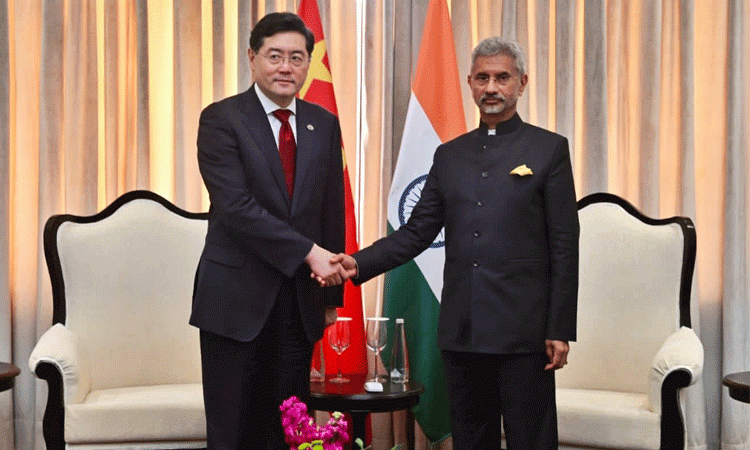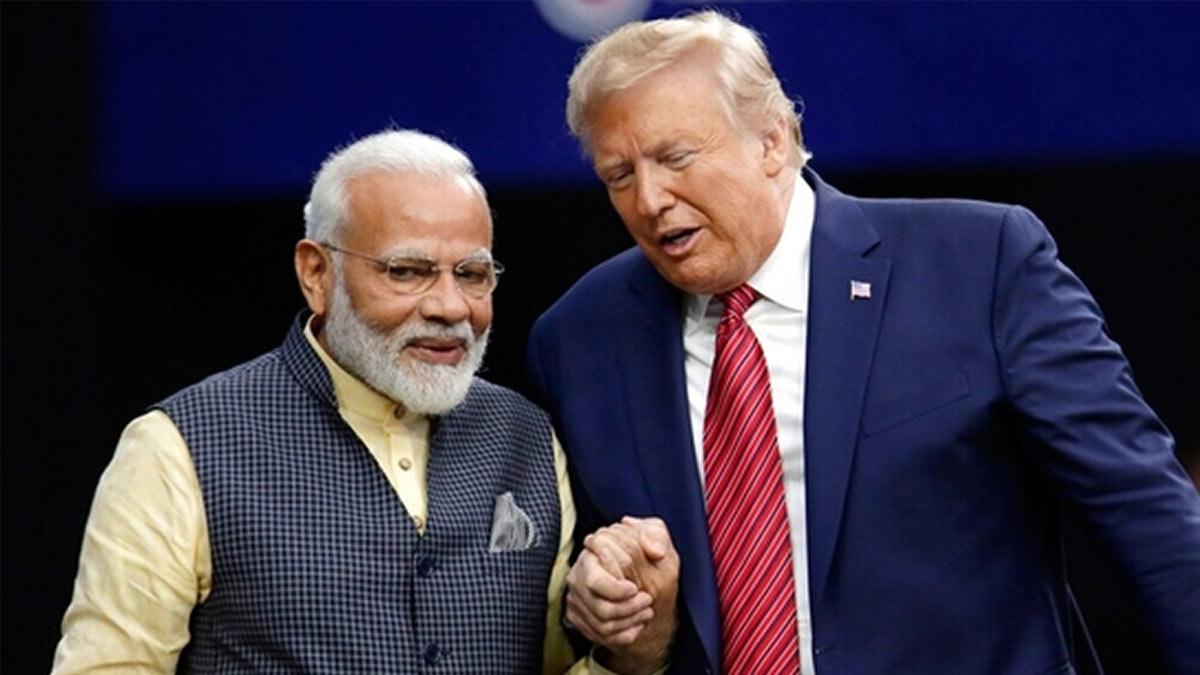Chinese foreign ministry on Friday said that Foreign Minister Qin Gang has conveyed to his Indian counterpart S Jaishankar that India and China should put the boundary issue in the "proper place" in bilateral relations and work together to bring the situation at their borders "under normalized management" as soon as possible.
Chinese Foreign Minister Qin Gang and his Indian counterpart S Jaishankar met on Thursday on the sidelines of the G20 foreign ministers conclave in New Delhi to discuss the over 34-month-long border row in eastern Ladakh.
India has maintained that its ties with China cannot be normal unless there is peace in the border areas.
Aslo read |China blames 'certain developed country' for Pakistan's financial crisis
Jaishankar, on his part, conveyed to Qin that the state of India-China relations is "abnormal" as their talks focused on addressing the challenges in bilateral ties, especially that of peace and tranquillity in the border areas. Both sides discussed implementing the important consensus of the leaders of the two countries, maintaining dialogue, properly resolving disputes, and promoting the improvement of bilateral ties and the steady moving forward of the relations.
"The boundary issue should be put in the proper place in bilateral relations," Qin said, adding the situation on the borders should be brought under normalized management as soon as possible. He said that China is willing to speed up the resumption of exchanges and cooperation with India in various fields, resume direct flights at the earliest date, and facilitate people-to-people exchanges. As neighboring countries and major emerging economies, China and India have far more common interests than differences.
Qin told Jaishankar that both sides should implement the important consensus of the leaders of the two countries, maintain dialogue and properly resolve disputes, and promote the improvement of bilateral ties and the steady moving forward of the relations, state-run Xinhua news agency quoted an official press release from the Chinese foreign ministry as saying.
Also read |Biden to sign off Republican-backed resolution on new crime laws
The development and revitalization of China and India display the strength of developing countries, which will change the future of one-third of the world's population, the future of Asia, and even the whole world, Qin noted. He said that the two sides should view their bilateral relations in the context of the once-in-a-century changes in the world, understand bilateral cooperation from the perspective of their respective national rejuvenation, and be partners on the path to modernization. China and India have shared interests in many areas, including safeguarding the rights and interests of developing countries, promoting South-South cooperation, and addressing global challenges such as climate change.
China supports the Indian side in fulfilling its chairmanship of the G20 and is ready to strengthen communication and cooperation to safeguard the common interests of developing countries and international equity and justice, so as to inject stability and positive energy into the world, Qin said. The talk between the foreign ministers came nearly eight months after Jaishankar held a meeting with the then-Chinese foreign minister Wang in Bali on the sidelines of a G20 meeting.
Relations between China and India have virtually frozen ever since the eastern Ladakh military standoff between the two countries in May 2020. In line with a decision taken at the 16th round of military talks, the two sides carried out disengagement from Patrolling Point 15 in the Gogra-Hotsprings area in September last year. But the face-off between the two of the planet's biggest military forces lingered on in Demchok and Depsang regions though the Indian side pressed for completion of the disengagement in remaining friction points at the earliest.
On February 22, India and China held in-person diplomatic talks in Beijing and discussed proposals for disengagement in the remaining friction points along the Line of Actual Control (LAC) in eastern Ladakh in an "open and constructive manner". The meeting took place under the framework of the Working Mechanism for Consultation and Coordination on India-China Border Affairs (WMCC).
The eastern Ladakh border standoff erupted on May 5, 2020, following a violent clash in the Pangong lake area. The ties between the two countries nosedived significantly following the fierce clash in the Galwan Valley in June 2020 that marked the most serious military conflict between the two sides in decades.


















